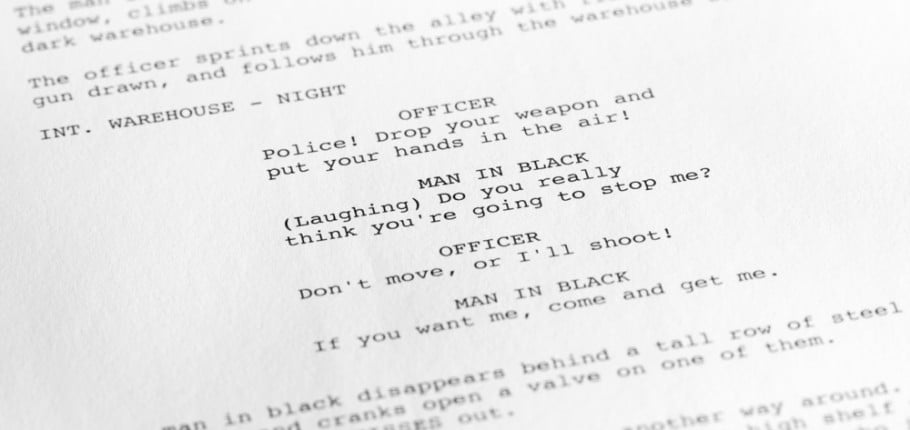
Screenwriting 101: Dealing with Criticism
You’ve just spent endless months toiling away at your desk to force an idea out of your head and onto your computer screen. You save your beloved screenplay as a PDF file and giddily send it to your entire circle of friends. You preemptively pat yourself on the back, anticipating the pure storytelling bliss that your writing will instill in every one of your readers. You are the Bringer of Life – supplying frustrated movie fans with a script that is so purely excellent that it will singlehandedly revitalize the film industry for countless generations.
What’s this? You got your first reply! Electricity ripples through your body as you open the e-mail…
They hated it?! They couldn’t get past the first ten pages?! The narrative lacks drama?! The characters are one-dimensional?! The talking guinea pig sidekick is annoying?!
You fall to your knees and tear off your shirt. You look up to the heavens and howl with incoherent rage. How dare they misunderstand your heartbreaking work of staggering genius?! Clearly, the fault is with these nit-picking losers that had the gall to pose as your nearest and dearest friends! Your screenplay is an untouchable masterpiece that should be heralded across the land! The emperor looks great in his cool new suit, and it is the villagers who have no clothes!
At this point, your own talking guinea pig sidekick toddles to your side and gives you the following advice:
Don’t Be Rude
Your readers took time out of their day to not only read your screenplay but also provide you with feedback. They easily could have ignored you but they put their own lives on hold to dedicate their energies to your creative indulgence. Even if you completely disagree with every point they made, you asked for their opinion and they gave it to you. “Thank you” should be your immediate response.
Let It Sink In
When someone cracks a joke about Yo Mama, it’s natural to verbally slam the other person’s Mama. When someone criticizes your script, you’re going to want to fire back. Don’t do that. In fact, don’t do anything for 24 hours. Reflect on the notes until you can determine the worth of each individual point.
Cross-Reference
If one person tells you that your antagonist’s plan is silly, it’s not the end of the world. Everyone has different tastes, and your chocolate might not mix with that dude’s peanut butter. However, if multiple people are telling you that your villain is an insubstantial threat, you need to pay attention. The more witnesses testify with the same information, the more your internal jury should find the defendant guilty.
Don’t Be A Push-Over
You’re going to get notes that you fundamentally disagree with. Maybe Wendy thinks that your protagonist’s final battle should take place aboard the USS Sealion submarine. But wait! Your story takes place in 1948, and the Sealion was scuttled after being irreparably damaged in 1941! You should not bend over backwards to incorporate every note. Some of them are going to be plain wrong. The magic words to use in this situation are: “I’ll think about it.” Then do nothing!
Shake It Off
Any negative criticism you receive is not a personal attack on you. Your value as a human being does not reside within the pages of one screenplay. Don’t be offended, and don’t be insulted.
In the immortal words of singer-songwriter Taylor Swift: Band-Aids don’t fix bullet holes.
How Competition Can Help you Write
Writing Exercises for Creatives and Writers
5 Formulaic Scenes that Work
One-on-one lessons with filmmakers and professional screenwriters at Film Connection



